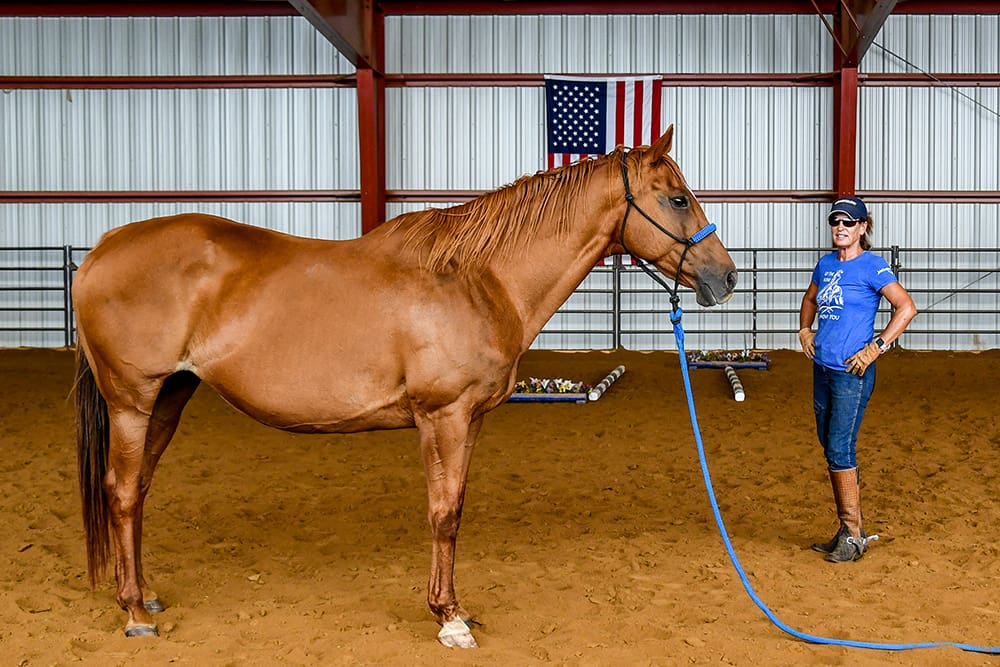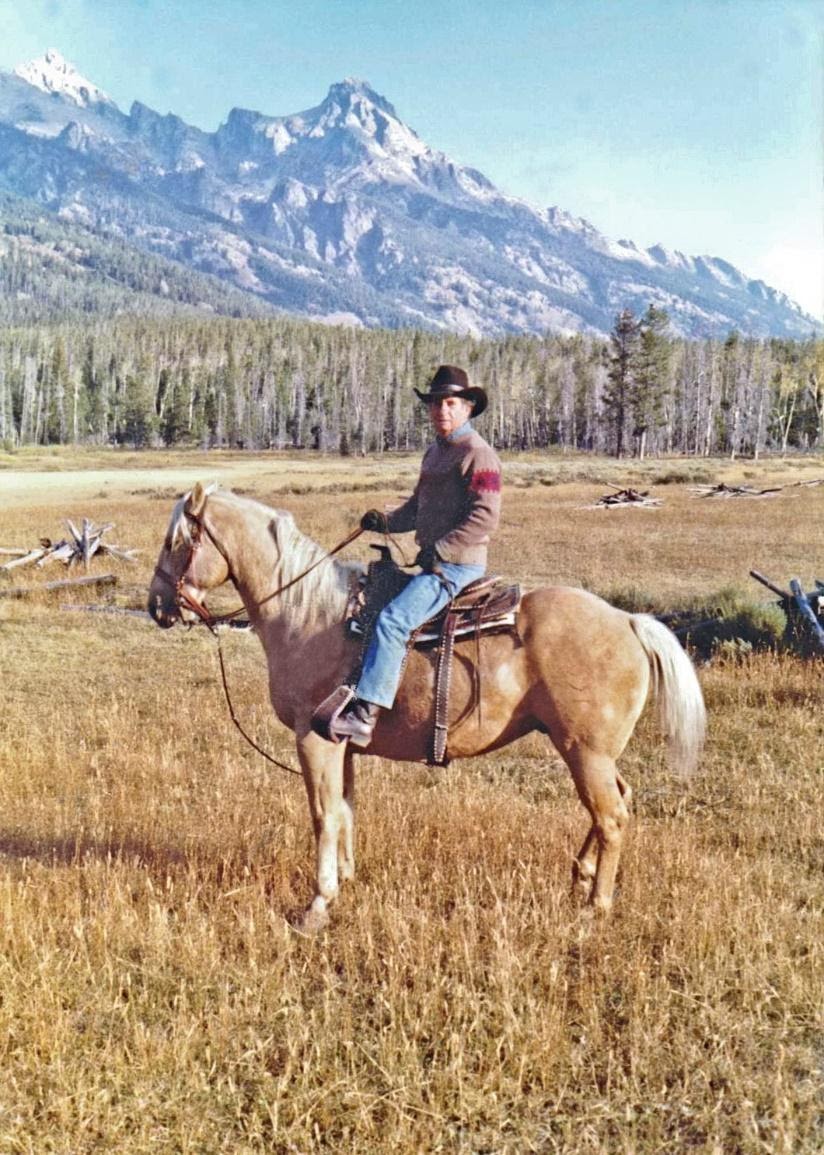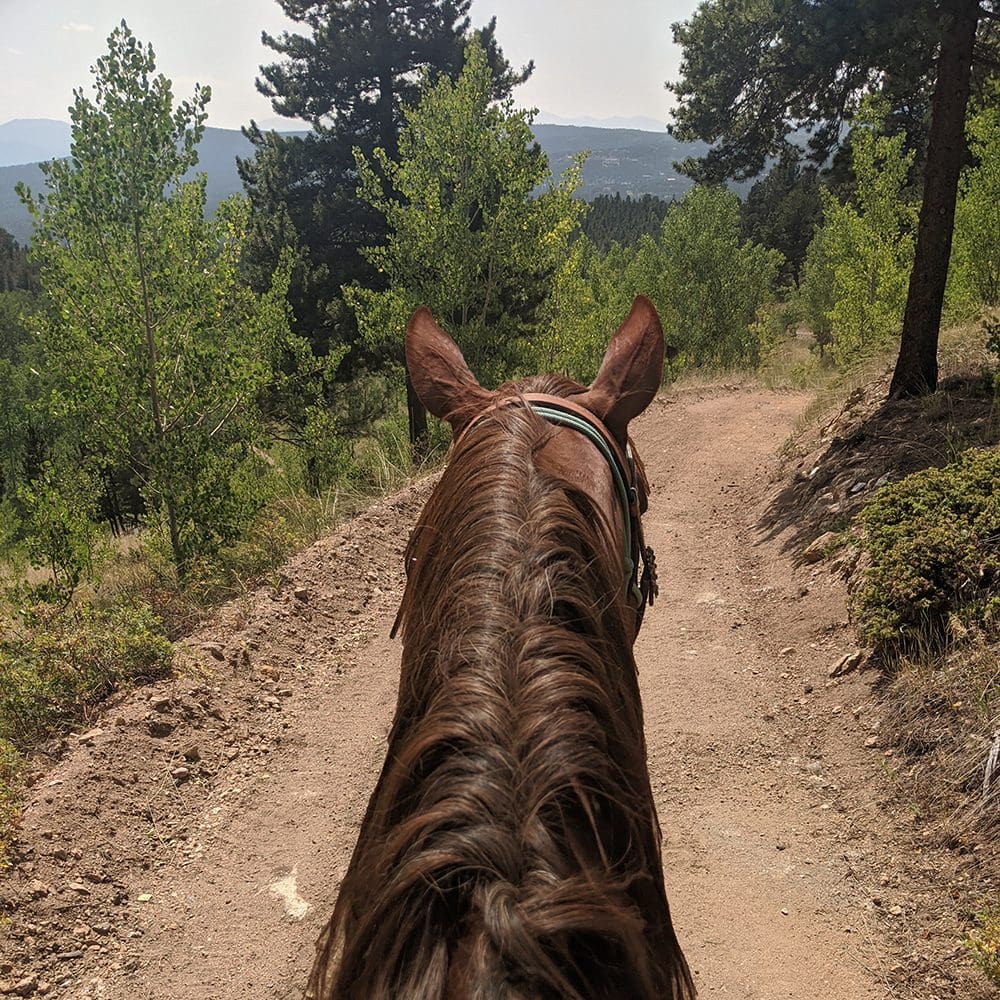Question Category: Issues from the Saddle
Question: Hello Julie:
I was on the Internet searching for info on rearing and found your web site. I have a question I hope you can help with. I have a 6 Yr. old TB. He came off the track at 4yrs old and has had on ground training and started jumping. I noticed some lameness issues with him after a long move. He has been sent to the Washington State University and diagnosed with slight arthritis in the right hock. He was injected and released. The University also did a bone scan of the hip and stifles just for my piece of mind. Since his return he has performed beautifully.
Here comes the question…. I was away on vacation and my trainer was saddling him in the cross ties (never a problem) and he pulled back a few times. She then went to working him in hand. This is when he threw a tantrum and not just reared, but was jumping up and throwing himself on the ground. Apparently he did this about 8 times before he realized it was causing him discomfort. I completely trust my trainer. She starts many horses, and specializes in recovery cases. She said she had never encountered a horse throwing himself down like that before. She continued working with him and he eventually came around. I know he has had some “going forward” trials before…but that seemed to be alleviated after his treatment at the Vet Hospital.
Knowing his health is fine, teeth fine, feet fine, can you give any advice as to why he would go to such lengths of avoidance? And to what we can do to eliminate this rearing. Obviously we will not be riding him until he is back to his old “good boy” self in hand. We aren’t even going to trust him in the cross ties for a while. I don’t understand how he could go from being a great, well-behaved boy, to a raving lunatic? I have had the local vet check him, and my equine chiropractor is coming at the end of the month. If he has no signs of pain, I’m afraid I will have to give him up. I want to be able to trust him not to injure himself or ME! Just last week my 5-year-old daughter sat on him while I walked him around. WHAT’S HAPPENED TO MY GOOD BOY?
If you can respond I would greatly appreciate any advice.
Thank you
Kelly Sundquist
Answer: Kelly,
As I read your email, many thoughts come to mind, the first of which is that it is difficult to pass judgment on a horse’s behavior without actually seeing the horse in action. I have learned through experience that there is generally more to the story than the person relaying the incident sees, and in this case, it is being relayed third-hand. Usually if I am there in person and able to step back and observe, I can find a cause or a reason that the person handling the horse may be unable to see.
That said, there are a few other thoughts that come to mind. I am not a big fan of cross ties and I think they can be highly dangerous, as in the case of your horse. If a horse panics in the cross ties, the chances of him getting in a big wreck and getting seriously hurt are very high. If your horse were pulling back at all, I would not put him in cross ties. You may try tying him to a solid object or hitching rail in a rope halter to see if that would discourage him from pulling, but sometimes a rope halter can make a puller worse because of the additional pressure on his face. There are several Q&As on my website about horses that pull back and also the use of cross ties, so read more about it there.
The other thought that comes to mind is that this is a cold-backed horse. I am not totally clear on whether or not the horse was saddled when this incident occurred, but it sounds like he was. A cold backed horse will sometimes react violently to the saddle, but typically not until it has been put on, the girth tightened and then the horse moves. When he moves, he suddenly feels the constriction and pressure on his back and blows up, often throwing himself on the ground. I have found this to be especially common in TBs. It is possible that she inadvertently got the girth too tight too soon and when the horse reacted and was cross-tied, a full-blown panic set in. This would also be consistent with a reluctance to move forward.
Horses rear either in a refusal to move forward or when forward movement is inhibited. Pain can certainly instigate rearing in a horse; however, it does not really sound like the previous lameness issue is a factor here. It is possible that when he first blew up in the cross ties; he tweaked his back and then was in pain. Hopefully your chiropractor has made a determination on that. There are also several articles on my website about rearing and the causes and solutions.
Going on the assumption that your horse is cold-backed (which is my best guess), all you need to do is make sure he is not tied in any way when you saddle, massage the girth area before tightening and tighten the girth very slowly, walking him between each tightening. Often cold backed horses will crow-hop a little when you first ask them to canter and you need to just work them through that by continuing to move them forward. These measures will alleviate the problems.
I hope your horse is doing better now. Good luck and be careful!
Julie Goodnight, Clinician and Trainer
Copyright ©Julie Goodnight 2000. All Rights Reserved. No part of this website may be reproduced without owner’s express consent. Backlinks are allowed.



